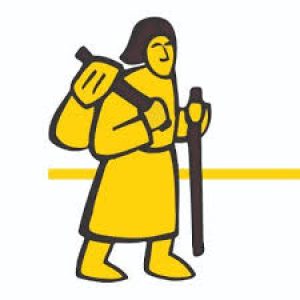The European Association of the Via Francigena ways EAVF participate in the webinar organised by the Council of Europe Cultural Routes programme.
The teleconference “Covid-19 and the Cultural Routes of the Council of Europe: Impacts and Responses” took place on 28 May. It involved 50 representatives of 38 certified Cultural Routes, the European Institute of Cultural Routes and the World Tourism Organization.
The webinar focused on assessment of the preliminary impacts of COVID-19 on the Cultural Routes and on the recovery strategy.
The impact of the COVID-19 pandemic on the cultural and tourism sector is being felt across Europe and the world and Cultural Routes networks have been seriously impacted by the current situation. Many activities of the Cultural Routes were cancelled or postponed, including important events, conferences, statutory meetings and festivals.
However, facing a challenging situation, the routes found innovative ways to continue their work in digitalised format, conducting events by teleconferences. Many routes organised online webinars for their members and stakeholders, prepared digital courses, and capacity building as well as launched communication campaigns.
The EAVF, represented by Elena Dubinina, cultural routes and international relations advisor, shared associations’ best practices of Covid-19 recovery: its new communication plan. The communication plan called “Keep the experience alive” is focused on pilgrims and walkers on one hand and on the EAVF members on the other hand.
The targeted communication to pilgrims and walkers includes a series of weekly live broadcasts on Facebook and Instagram hosting inspirational writes, singers, photographers, and route’s enthusiasts under a motto “Travel from home with your heart”. This communication tactics has brought 5k new followers on social media with an average outreach of each video being about 15k people for the past 20 broadcasts.
The communication with EAVF public and private stakeholders is focused on clear information flow about national and regional directives as well as on the communication strategies for hospitality receptions and service providers during the Covid and post-Covid phases.
A representative of the World Tourism Organization presented the UNWTO recommendations for tourism recovery, which include:
- Improving information and data exchange,
- Launching innovative partnerships,
- Strengthening governance structure,
- Attracting new audience,
- Shifting from quantity to quality.
The EAVF, following its communication strategies, has been able to attract new followers and raised interest to the route and slow tourism. Via webinars and teleconferences it reinforced the network of public authorities – members of the association and reassured private stakeholders via participative approach in closed discussion groups.
The Via Francigena route is a great example of a resilient transborder destination capable to recover the health emergency and contribute to local communities and wellbeing of walkers and pilgrims en route.



